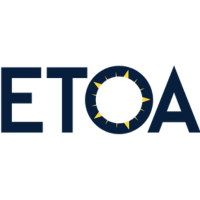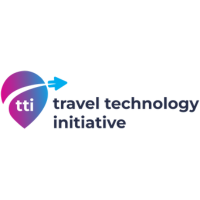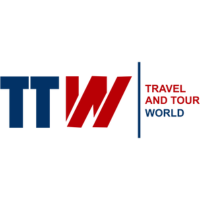The Future of Business Travel: How Travel Tech Is Reshaping Corporate Journeys
)
- Updated: 27 April 2025
- By: Jonathan Carter-Chapman, Marketing Director, Northstar Travel Group
- Topics: Corporate Travel Tech, AI in Travel, Booking Systems, TMC Innovation, Data-Driven Travel
- Read Time: 8 minutes
Quick Summary
AI, automation, and intelligent data platforms are reshaping the future of business travel. From scalable booking systems and smart workflow tools to carbon tracking and wellbeing analytics, travel technology is unlocking new ways for Travel Management Companies (TMCs) to improve service, efficiency, and profitability.
As companies reimagine corporate trips, providers like TripStax, Toureo, and Lokulus are leading the charge, redefining the landscape of business travel.
REGISTRATION NOW LIVE Book Your Stand
Travel Tech Show | 25-26 June 2025 | ExCeL London
Introduction
Once dominated by spreadsheets and manual bookings, the business travel industry is undergoing a remarkable transformation. Today, the combination of artificial intelligence, AI-powered tools, and data-driven platforms is redefining the way organisations manage business trips.
The pressures of recent years — from volatile economies to the drive for sustainable practices — have accelerated the evolution of business travel. TMCs are now embracing technologies that not only cut travel costs but also enhance travel experiences and employee satisfaction.
At the heart of these changes are key trends: modular platforms, carbon footprint tracking, integrated booking ecosystems, and machine learning-driven insights. As corporate travel trends evolve, a new, smarter, and more agile model is emerging.
The Rise of Centralised Data in Travel: TripStax Leads the Way
TripStax has exemplified how the business travel industry is pivoting towards centralised data hubs. Its TripStax Core platform acts as a single source of truth, enriching corporate trips with carbon emissions data, security updates, and wellbeing metrics.
By enabling companies to reduce their carbon footprint while managing travel costs, TripStax offers sustainable travel options that are no longer just nice-to-haves, but essentials. With over 43 million automated CO2 data requests processed in 2023, it's clear that sustainability is now a core driver in business travel trends.
CEO Jack Ramsey sums it up:
Breaking the Mould: Lokulus and Agentivity’s AI Automation Alliance
Legacy systems and fee models have long restricted growth in the business travel industry. Enter Lokulus and Agentivity, whose AI-powered tools are setting new benchmarks. Their intelligent workflow automation solution not only manages booking workflows but also tracks person interactions across every touchpoint.
By intelligently allocating tasks based on employee skills, this platform not only increases efficiency but also boosts employee satisfaction. The collaboration between Lokulus and Agentivity highlights how virtual assistants, powered by machine learning, are replacing rigid manual processes, allowing TMCs to deliver enhanced service while confidently charging for bespoke support levels.
As corporate travel trends shift towards personalised, data-driven services, AI and automation are becoming indispensable allies.
Operational Simplicity at Scale: Lessons from Toureo
While originally designed for tour operators, Toureo's platform offers a compelling blueprint for corporate trips. By integrating booking management, CRM, automation, and analytics into a single system, Toureo addresses one of the most pressing issues in the landscape of business travel: fragmentation.
Automation of routine tasks — from payments to communications — frees up human resources for high-value activities, like strengthening person meetings and crafting better travel experiences. This unified model supports scalable, sustainable practices while helping businesses trim travel costs without compromising on service.
In a world where virtual meetings are commonplace but person meetings remain critical for relationship building, Toureo's model champions the balance between technology and human connection.
The New Priorities: Sustainability, Safety, and Wellbeing
Today, the future of business travel is about far more than logistics. Companies increasingly expect their travel partners to support broader strategic goals: reducing carbon emissions, safeguarding traveller wellbeing, and promoting sustainable practices.
TripStax has seen a significant rise in third-party requests for security, wellness, and environmental data, reflecting the new priorities of corporate buyers. Sustainable travel options, once a secondary consideration, are now front and centre.
As organisations look for ways to offset their carbon footprint, platforms that integrate carbon tracking and wellbeing metrics by design — rather than as bolt-ons — are poised to lead the market.
From Fragmentation to Flexibility: The Modular Revolution
Fragmentation has long been the Achilles' heel of the business travel industry. Disconnected systems and multiple vendors created inefficiencies that drove up costs and frustrated users.
Today's best-in-class solutions, like TripStax and Toureo, are reversing this trend with modular, scalable ecosystems. They enable TMCs to adopt only what they need, then expand flexibly as their needs evolve. With AI-powered tools and modular integration, businesses gain agility without disruptive overhauls.
This movement reflects a broader shift toward personalised, insightful travel management — not just reactive booking services.
Final Thoughts
The future of business travel is here. From the rise of virtual assistants and virtual meetings to the deployment of machine learning and AI in travel management, the industry is evolving at an unprecedented pace.
TMCs that invest in sustainable travel options, adopt AI-powered tools, and prioritise employee satisfaction will be the ones leading the next generation of corporate trips.
With valuable insights at their fingertips and a clear focus on sustainable practices, travel providers are transforming from reactive service desks into strategic partners, helping companies navigate the dynamic landscape of business travel with intelligence, agility, and purpose.
The message is clear: the next era of corporate travel belongs to those who innovate — and who never lose sight of the enduring importance of person interactions and enriching travel experiences.
Further Reading
- TripStax celebrates two years of significant business growth – tech provider sees surge in demand for automated carbon, risk and wellbeing data
- Pioneering AI automation software to transform the way TMCs do business
- Toureo Launches Revolutionary Tour Operator Software to Transform the Travel Industry

)
)
)
)
)
)
)
)
)
)
)
)
)
)
)
)
)
)
)





